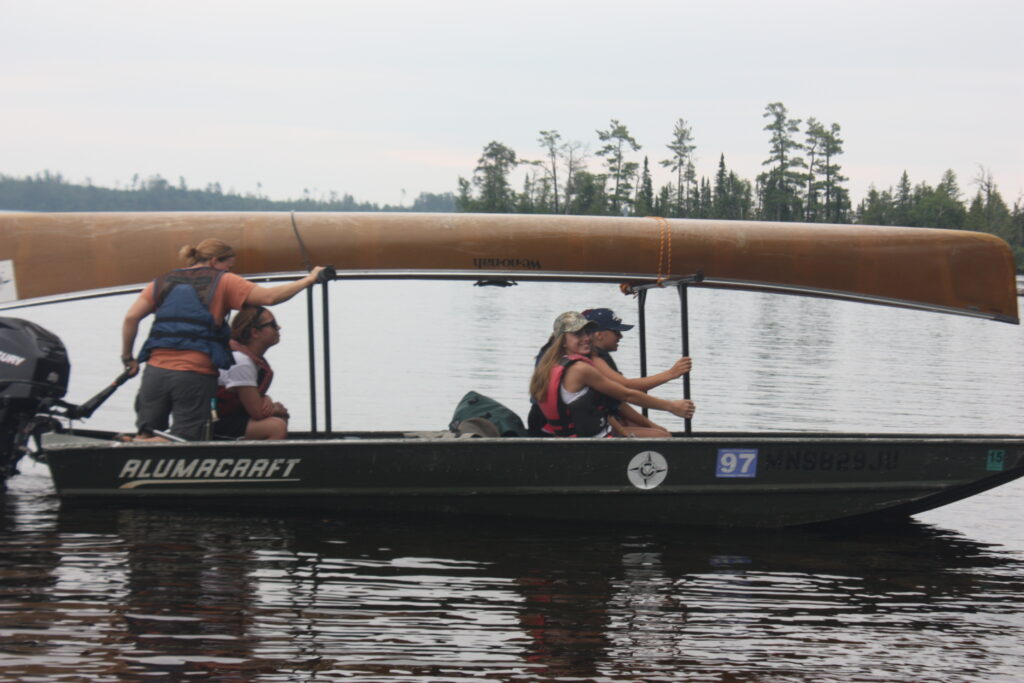No more tow boats in the Boundary Waters?
Wilderness Watch is suing the US Forest Service in order to remove towboats from the Boundary Waters Canoe Area Wilderness. They want tow boat use to end and to not allow them on the lakes when the ice melts this year. You can read an article online for more details or my previous blog post about this to hear more about my opinion.
Even if towboats were removed this year there would still be motorboat traffic on the BWCA lakes that allow motors. If towboats and all boats were banned on the Minnesota side of Saganaga the Canadian side of the lake has cabins where float planes are allowed to land and take off, people can use chainsaws to clear trees, generators for electricity and motorboats to get from one place to another. Saganaga Lake is in the Boundary Waters but it is never going to be a pristine wilderness lake where you can’t hear non-wilderness noise.
There is so much history with the creation of the Boundary Waters and with it many promises were made regarding the use of motors on entry point lakes. Kevin Proescholdt from Wilderness Watch has been around a long time yet in all of his years he still can’t manage to speak the truth. He claims towboat traffic has tripled since the early 1990’s and that the USFS has continued to let it grow. On Saganaga Lake specifically this is an outright lie. When we moved to the end of the Gunflint Trail in 1993 there were way more towboats operating than there are now. Specifically two businesses that had 3-4 towboats each are no longer in existense and neither are their towboats. I’m not good at math but I’m pretty sure when you remove something it means there are fewer of something.
Motorized use on Saganaga Lake as a whole has dropped substantially in the past decade. Homeowners who were once exempt from purchasing a permit to go onto the lake now have to get permits. Many days there are not motor permits available because of environmental extremist groups who reserve permits and don’t use them just to keep motors out of the BWCAW.
Wilderness Watch should keep their focus on real threats to the wilderness and not waste the USFS dollars or time on this ludicrous lawsuit.

“A wilderness, in contrast with those areas where man and his own works dominate the landscape, is hereby recognized as an area where the earth and its community of life are untrammeled by man, where man himself is a visitor who does not remain. An area of wilderness is further defined to mean in this Act an area of undeveloped Federal land retaining its primeval character and influence, without permanent improvements or human habitation, which is protected and managed so as to preserve its natural conditions and which (1) generally appears to have been affected primarily by the forces of nature, with the imprint of man’s work substantially unnoticeable; (2) has outstanding opportunities for solitude or a primitive and unconfined type of recreation; (3) has at least five thousand acres of land or is of sufficient size as to make practicable its preservation and use in an unimpaired condition; and (4) may also contain ecological, geological, or other features of scientific, educational, scenic, or historical value.”

